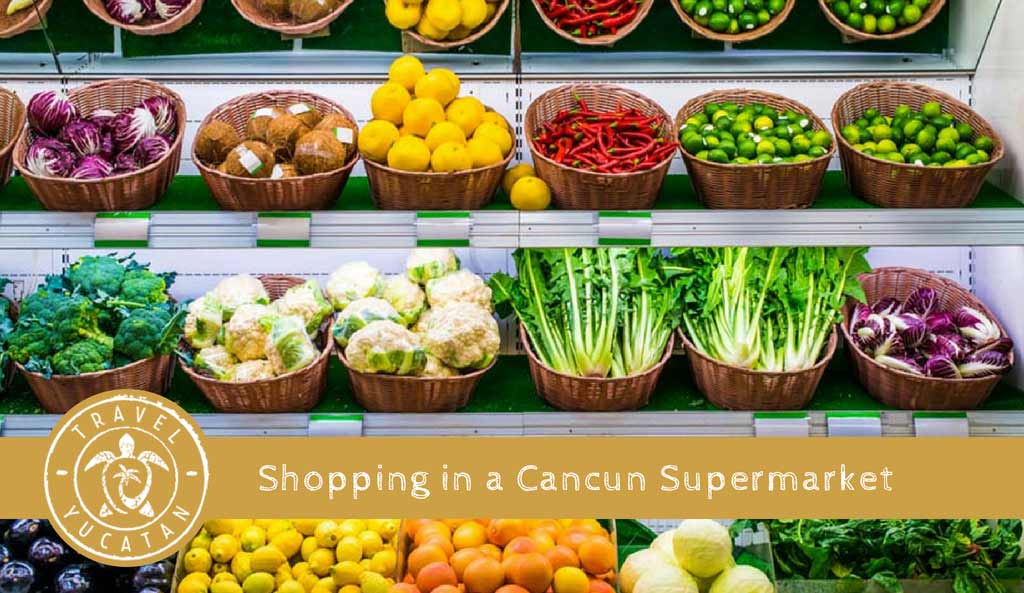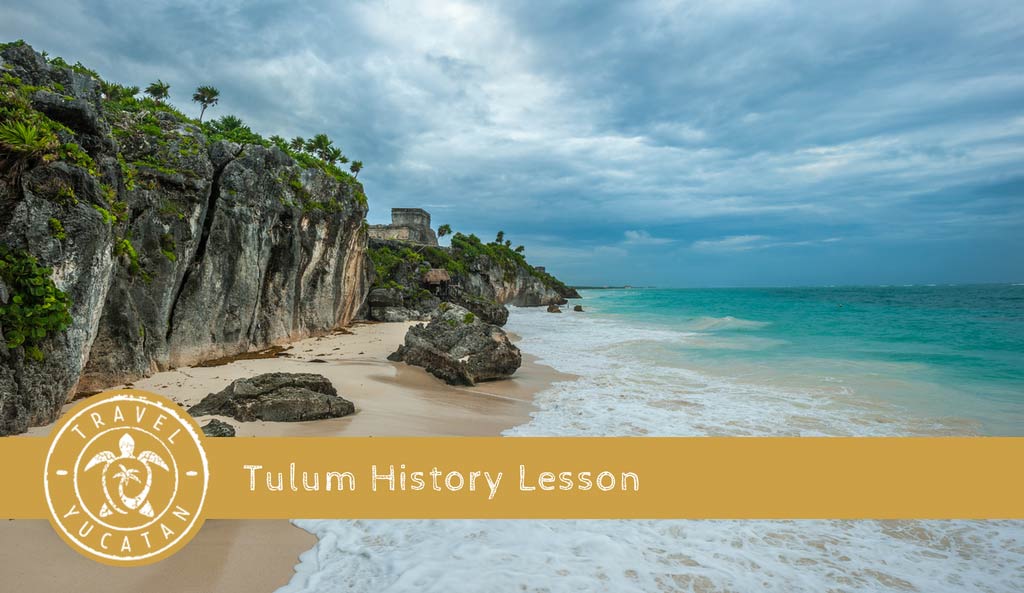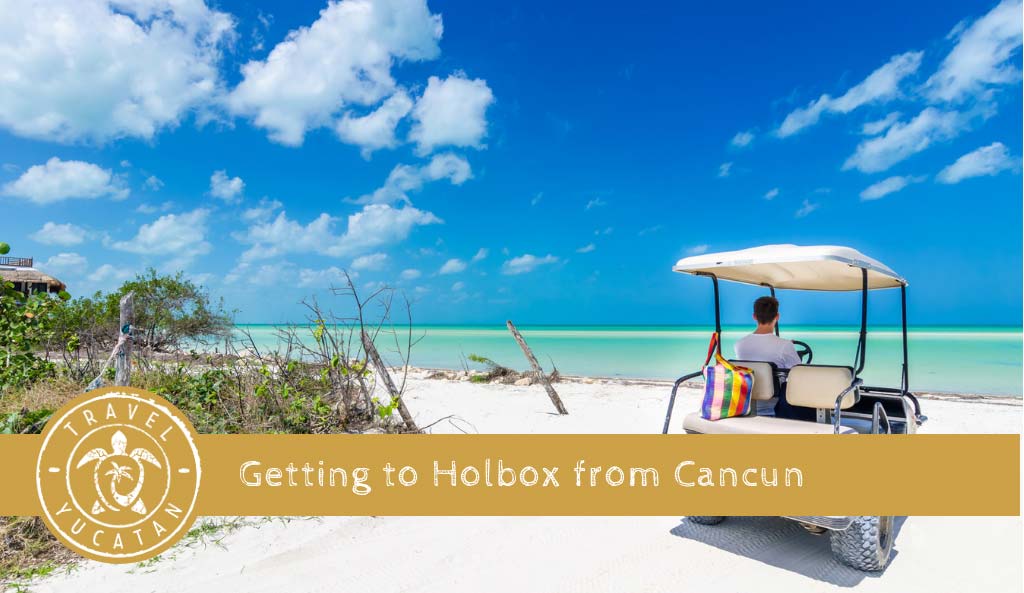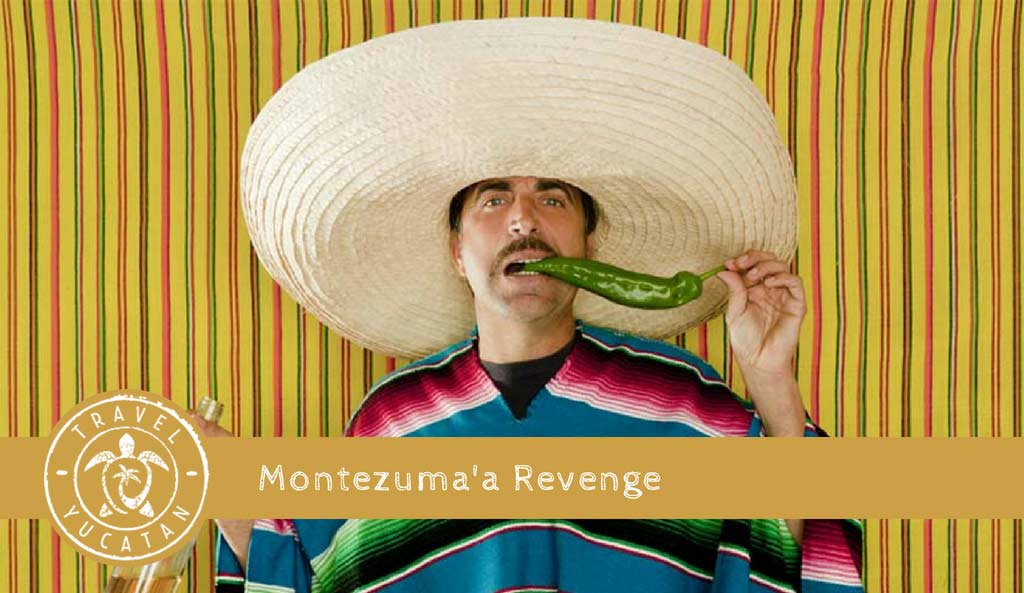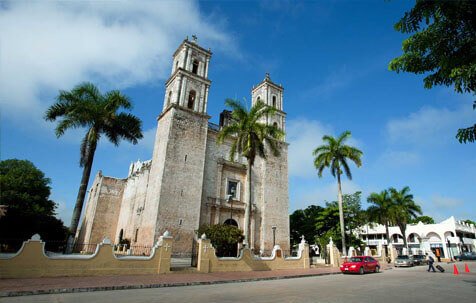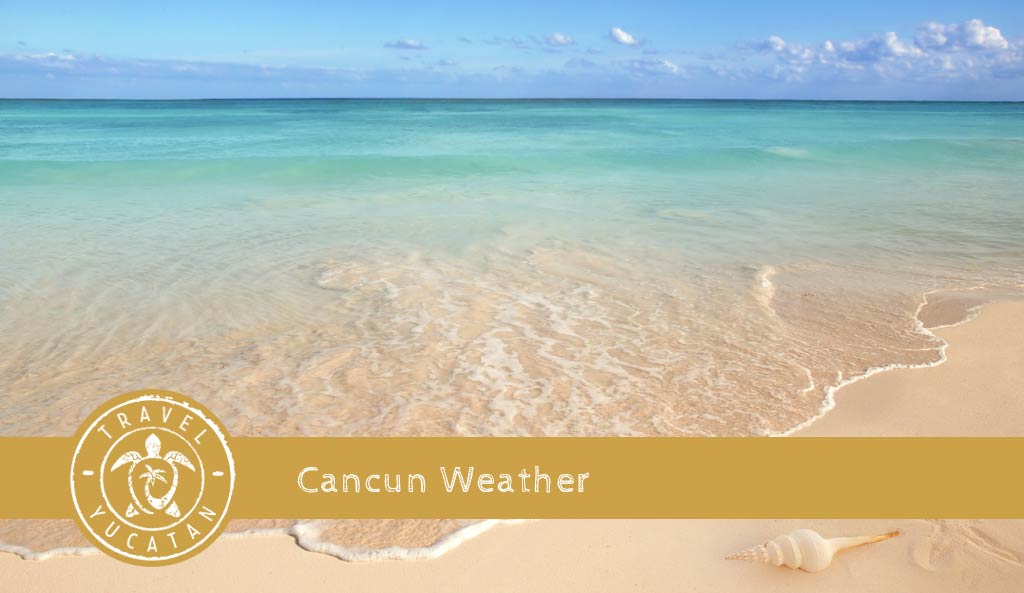Feeding two adults, a teen-ager and two small children in good times and bad has been quite a challenge. I can still remember the day we arrived in Cancun and faced all the unfamiliar brands. All the packaged food you find on the shelves of Mexican stores is regulated and supervised by the government. Quality does vary, but the food is all safe to eat. American brands manufactured in Mexico are often better than the originals.
Understanding a label
The best canned goods are Mexican brands. Second come international brands manufactured under license in Mexico. Food prices in Mexico are a bargain. Buy the best! Here are some suggestions.
Pronunciation
If no pronunciation guide is shown, the word is pronounced about the way it would be in English. At the moment this list contains only items that do not require cooking. See also “Fruits and Vegetables,” “Butchers,” and “Fish.”
The information is not organized alphabetically, but in more or less the customary order of making and serving a meal, beginning with:
English – Spanish (Pronunciation)
Equipment
Can opener – Abrelata (ah-bray-LAH-tah)
Spoon – Cuchara (koo-CHAH-rah)
Fork – Tenedor (teh-neh-dohr)
Knife – Cuchillo (koo-CHEE-yoh)
All can be found on the household aisle.
Drinks
Beverages – Bebidas (beh-BEE-das)
Water – Agua (AH-gwah)
CRISTAL (kree-STAHL) Inexpensive, tastes fine. Cancun tap water is purified at the well and re-purified by many hotels, but the high chlorine content can be quite intrusive. See “Sodas” for mixers. Many foreign spring waters are sold in Cancun. We find Cristal preferable to reverse-osmosis brands.
Juice – Jugo (HOO-go)
Jumex hoo-mex; Xico (HEE-ko). Fruit juices with authentic tropical flavor. Like sex, quality varies, but when good it’s excellent and when bad it’s still pretty good. We favor bottles over cans. Tomato is tremendous. Try guayaba (GUAVA — gwah-YAH-ba) for an unusual super treat. Beautiful labels tell you what’s inside even if you don’t know a word of Spanish. This brand is now available in paper cartons. Alternate brand: DEL VALLE, good apple juice.
Bee – Cerveza (cer-VEH-sah)
DOS EQUIS OSCURO — dohs-EH-kees; Bohemia — bo-EHM’ya. Full-flavored lagers as good as any European premium beer. If you prefer more American-style lighter beers, try Superior –soo-pehr-ior, or Dos Equis Lager. Yucatecan regional brands are excellent but the quality is not as uniform. Look for hearty, dark León Negra — lay-OHN NEH-gra.
Sodas – Refrescos (Reh-FRES-kohs)
COCA-COLA. The standard, seems to taste a little richer here.
CRISTAL. Nice fruit flavors, especially naranja (orange — na-RAHN-ha) and mandarina (tangerine — mahn-dah-REE-na). All other brands are quite good, too.
Dairy Products – Lechería (leh-cheh-REE-ah)
Milk – Leche (LEH-chay)
Mexican milk and butter do not taste the same as American, mainly because of differences in the way they feed the cows, as well as other factors. If you must have the exact American flavor, you can get Prices’s milk imported from Texas in Wal-Mart.
La La. Super-sterilized milk in cartons, fairly close to American flavor, best served cold. Fine for cereals or as base for chocolate milk.
Nido NEE-doh. Powdered canned whole milk by Nestlé. Mixed with Cristal water it comes close to American milk flavor, especially when cold. It’s far superior to any American powdered milk. If you like cream with your coffee, mix it extra-thick. Fresh cream here has a high fat content and won’t mix in coffee.
La Lechera. Canned condensed milk with high sugar content. A Nestlé product.
Nestlé Doble Crema. Canned condensed milk with high butter-fat and bland flavor. Does not mix well with coffee, good for salad dressings, with canned or sugared fruit.
Yogurt – (yo-GOORT)
DANONE, CHAMBOURCY. A little more bitter than American. Chambourcy Cremosa is closest to American flavor. Fruit flavors are blended rather than containing whole fruit.
Sour Cream – Crema Acida (KREH-ma AH-cih-dah)
ALPURA. Not always available. It is somewhat sweeter and thicker than American sour cream.
Sandwiches
Bread – Pan (pahn)
BIMBO, Wonder Bimbo Pan Integral (whole wheat) is a well-made standard commercial sandwich bread. Wonder Integral is a highly superior 100% whole wheat sandwich bread and preferable to Bimbo when available. Other Bimbo products are at least as good as their American equivalents, and often better. Try their sweet rolls when you feel that only Mother could get you through today’s crisis. Bolillos –bo-LEE-yos, hero-style white rolls, are great for sandwiches and toasting.
Cheese – Queso (KEH-so)
Make sure packaging is removed before slicing – “Favor de quitar la envolatura antes de rebanar.” (Fah-VOR deh kee-TAR la ahn-vo-la-TOO-rah AHN-tehs de reh-bah-nar)
All packaged brands are acceptable.
American-Style Cheese – Queso Amarillo Tipo Americano (KEH-so ah-ma-REE-yo TEE-po ah-meh-ree-KAH-no)
Kraft, Chambourcy
Muenster-Style
Manchego
Caperucito
Cheddar-Style
Chihuahua (chi-HWAH-hwah)
Bulk is best.
Cream Cheese
Kraft Philadelphia, Chambourcy
Look for familiar packages. Check for freshness.
Peanut Butter – Crema de Cacahuate (KREH-ma deh kah-kah-HWAH-tay)
Planter’s, Skippy (imported from USA) are the best, when available.
Watch out for odd flavors such as chocolate and super-sweet (with blue label).
Jam – Mermelada (mehr-may-LAH-da)
Kraft, McCormick
Strawberry – Fresa (freh-sa) is always a safe bet. Apricot – chabacano (cha-bah-KAH-no) and peach – durazno (du-RAHS-no) are top-notch.
Cold Cuts – Carnes Frias (KAR-nes FREE-ahs), or
Salchichonería (sahl-chi-cho-neh-REE-yah)
It is customary to ask for a taste
Say, “Quiero probarlo, por favor.” (K’YEH-ro pro-BAR-lo pour fah-VOR)
500 grams is a little more than a pound
500 grams – quinientos gramos (kin-YEN-tos grah-mos)
300 grams will make ample sandwiches for two persons.
300 grams – tres cientos (300 treh s’YEN-tos)
Names of varieties are usually the same as in the United States, flavors resemble Italian
PARMA. Highly recommendable and very well packaged. Zwan is good. Fud is acceptable.
Ham – Jamon (hah-MOHN)
PARMA. This brand is usually excellent, but other brands can be irregular in quality. Always ask to see the ham before it is sliced.
Tuna – Atún (ah-TUN)
MAZATUN is the best Mexican brand. The meat is usually red. For better quality, look on importation aisles for American, Japanese or European brands.
Sardines – Sardinas
Mexican canned sardines in tomato sauce in the familiar oval can are the cheapest emergency food you can buy, but imported brands of canned fish are better.
Spreads & Condiments
Butter – Mantequilla de Vaca (mahn-tay-KEE-ya deh VAH-kah)
Mexican butter is at best acceptable. Fern butter from New Zealand is sometimes available in local supermarkets and is well worth buying.
Always check freshness and odor.
Sauces & Flavorings – Salsas & Condimentos
Sugar – Azucar (ah-SOO-car)
Sold in one kilo (2.2 lbs.) unmarked plastic bags, Mexican sugar is distinctly off-white and can contain flakes of molasses, but is far superior in flavor to American super-white refined sugars.
Vanilla – Vainilla (vah-NEE-yah)
Vanilla is sold in Hotel Zone shops beautifully bottled with gold foil labels and prices that will seem cheap compared to what the extract costs in the United States. Other brands sold in all supermarkets are good and cost much less but avoid labels with the words sintética or sabor de vainilla (vanilla-flavor, not the real extract). You can also find whole beans at Abastos Puerto Morelos.
Honey – Miel de abejas (m’yehl deh ah-BEH-has)
Miel means syrup in general. Miel de abejas is honey
Govinda, Elimiel. Yucatecan honeys are among the finest in the world and the peninsula is the world’s second largest producer, after China. Honey is also sold in fruterías and other stores in recycled liquor bottles, sometimes with corncob stoppers. This honey varies in quality, sometimes exquisite, but often it is slightly fermented and has dead ants and other foreign matter. When good, it’s well worth buying, but always check the taste carefully. Govinda is an especially good commercial honey packaged in Merida and is usually available. Elimiel, less professionally packaged, is equally good, but not always available. Other Mexican honeys, mostly from Veracruz, are excellent, but more expensive. Carlotta is always a safe bet.
Catsup – Del Fuerte
Mayonnaise – Mayonesa (ma-yo-NEH-sa)
Kraft, Hellman’s. Jars marked Tipo Casero have the flavor you are accustomed to.
Mustard – Mostaza (mo-STAH-sa)
Kraft, McCormick. Coleman’s English Mustard is sold in Abastos Puerto Morelos
Chiles
Herdez, La Cumbre, La Costeña.
Salsa Verde Canned green sauce, spicy but inoffensive. Try mixing this with ketchup.
Salsa Casera A little spicier — diced tomatoes, chiles, onions and cilantro.
Chiles en Escabeche — Canned hot pickled chiles. A little goes a long way.
Rajas — sliced, RAH-has. Jalapeños — ha-la-PEHN-yos, originated in Vera Cruz, quite hot.
Habañeros –Yucatecan — very hot. Heat will vary even in the same brand and variety from can to can.
Clemente Jacques has a full line of pickles and relishes, including cocktail onions.
Spices – Especias (eh-SPEH-s’yahs)
These come in the familiar small narrow jars, as in the United States, often with the same labels — McCormick, Spice Islands –and in little plastic bags, often fresher and more convenient.
Basil – romero
Tarragon – estragón
Thyme -tomillo toe-MEE-yo.
Salt – sal
Pepper – Pimienta (pih-m’YEN-tah)
Negra –black. Blanca — white.
Treats – Golosinas (go-lo-SEE-nahs)
Baked Goods
Cookies – Galletas (gah-YEH-tas)
Cupcakes – Pastelitos (pah-steh-LEE-tohs)
Polvorines, powdery sugar cookies, are soothing pacifiers for children and adults alike. Tip: Imported brands of cookies in familiar tins are often excellent buys.
All TIA ROSA products are good and some are life-savers. Their croissants, corn muffins and cookies taste better than many American neighborhood bakery products and are far superior to any commercial American baked goods.
MARIANA cookies are high-quality and quite inexpensive.
Marinela products are for absolute junk food junkies. Try their Pinguinos — creme-filled chocolate cupcakes, or Choco-Roles –chocolate cake “fingers” rolled in chocolate and covered in chocolate. For total anti-ecological decadence, Gansitos — chocolate, jam, sugarsugarsugar, cake — are best savored cold.
Nuts – Nueces (nu-EH-ces)
Diamante, Mafer. Nice assortments of canned peanuts (cacahuates) and other nuts. Illustrations on the packaging will tell you what’s inside.
Japonesa –Japanese-style. Enchilados — with chile.
Chips
All brands are excellent. These come in the familiar packages and are as good as or better than American brands. Papas fritas –potato chips. Tostaditas — fried corn tortilla chips.
Fruit Paste – Ate (AH-tay)
At the deli counter, bulk or packaged, are superb snacks with cheese. Flavors vary depending on the season and the particular batch, so ask for a taste. Look especially for:
Pasta de Guayaba PAH-sta deh gwah-YAH-bah)
Guava paste in cellophane-wrapped bars from Merida.
Candy – Dulces (DOOL-sehs)
Mafer is excellent. Try their peanut brickle bars for instant energy. International brands are good.
Ice Cream – Helados (eh-LAH-dos)
Almost all guide books will warn you against eating ice cream, but we have had no problems with the major brands and even allow the children to eat them. Ice cream sold from the little carts may be suspect, as some of it is home-made.
Holanda
Sold everywhere in bulk and packaged. Made with milk substitutes, but you would never know it, as the flavor is great. Chocolate ice cream bars — paletas — are tops.
Nestlé Bambino
Best in bulk, especially chocolate.
